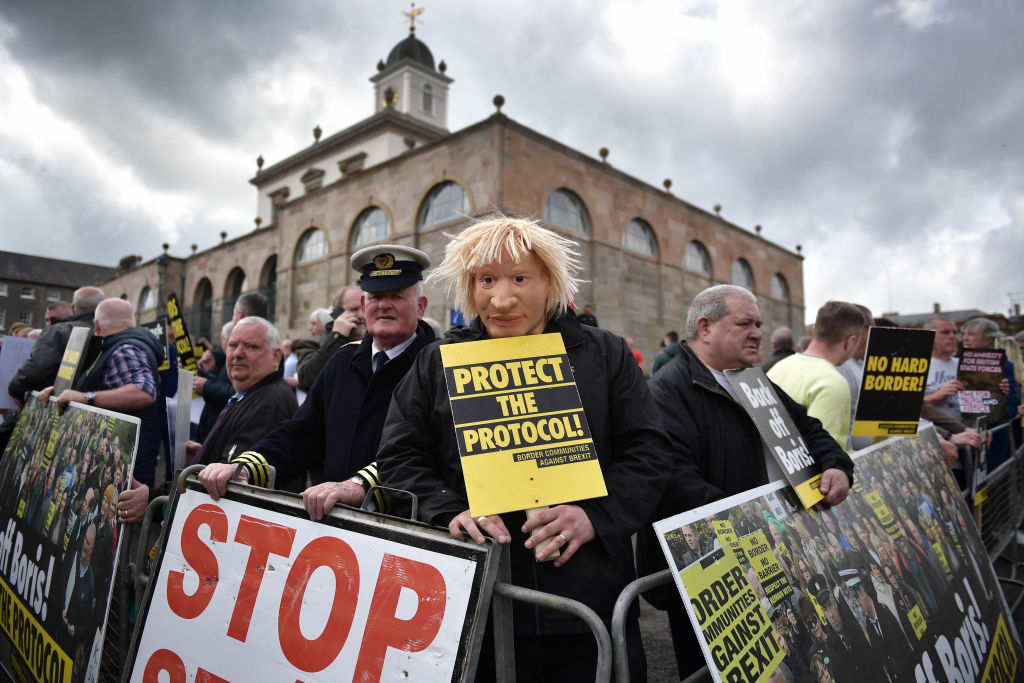On the Irish border, the speed of a compromise will determine future stability

OF ALL the places to threaten to provoke a “war” over, Northern Ireland is an unfortunate one to pick. The rumbling disquiet at the margins of the region’s political sphere (in the form of republican and loyalist paramilitaries) has never been completely hushed. Indeed, the fragility of the situation compelled the UK and EU to make special post-Brexit arrangements for Northern Ireland. In light of this fragility, compromise was necessary. The Protocol sees Northern Ireland de facto remaining in the EU’s single market, the integrity of which now depends on the UK’s implementation of its rules.
This has never been straightforward. The Protocol was breached early on, in March 2021, in the form of simple non-implementation, when the government unilaterally extended the grace period for EU agri-food rules applying to supermarkets entering NI. And the EU’s rules on parcels and pet movement across the Irish Sea have not been rolled out either.
The EU is very conscious the Protocol is still far from being fully implemented. For its part, the UK considers those expectations to be not only unrealistic but objectionable, given that it entails the application of EU rules within the United Kingdom.
Government ministers have not shied away from throwing around strong rhetoric against the EU’s continued influence through the Protocol. And unionists in Northern Ireland have been particularly aggrieved, not just at the existence of new checks and controls on goods entering from Great Britain but at the fact that such trade frictions contravene the 1800 Act of Union.
The DUP’s selling point, as the largest unionist party, is to be best placed to defend Northern Ireland’s place in the Union. Because major decisions in the Northern Ireland Executive and Assembly requires the participation of the largest unionist and nationalist parties, the DUP holds a veto over the operation of both. It is currently exercising this to full effect in order to add a sense of urgency and intensity to the UK’s push on the EU to move on the Protocol.
In amongst the mess of briefings, Boris Johnson and Liz Truss seem ready to bring forward proposals to enable it to override the EU law that applies through the Protocol. Such legislation would take time to come to pass and it would not bring any immediate practical resolution to the problems at hand. It would primarily be an act of symbolism to provoke a reaction from the EU.
The EU is required to act in a “proportionate” way to whatever the UK does. There is a difference between proposing the law, passing the law and applying the law, and the EU will be conscious of this as it decides its response. Just as the UK’s options are on a spectrum, so the EU’s reaction can be too. On the one hand it might simply refuse to be threatened into action and just repeat its offer of talks, on the other it might consider the UK to have breached the rule of law and move to suspend the Trade and Cooperation Agreement altogether.
We have been here before – not least in the threats of No Deal during the withdrawal and the TCA negotiations. The ultimate outcome at each turn has been one of accommodation. That is the only possible end point here too. Whether we get there sooner or later depends on how much damage both sides are willing to see occur to Northern Ireland’s fragile stability in the meantime.
